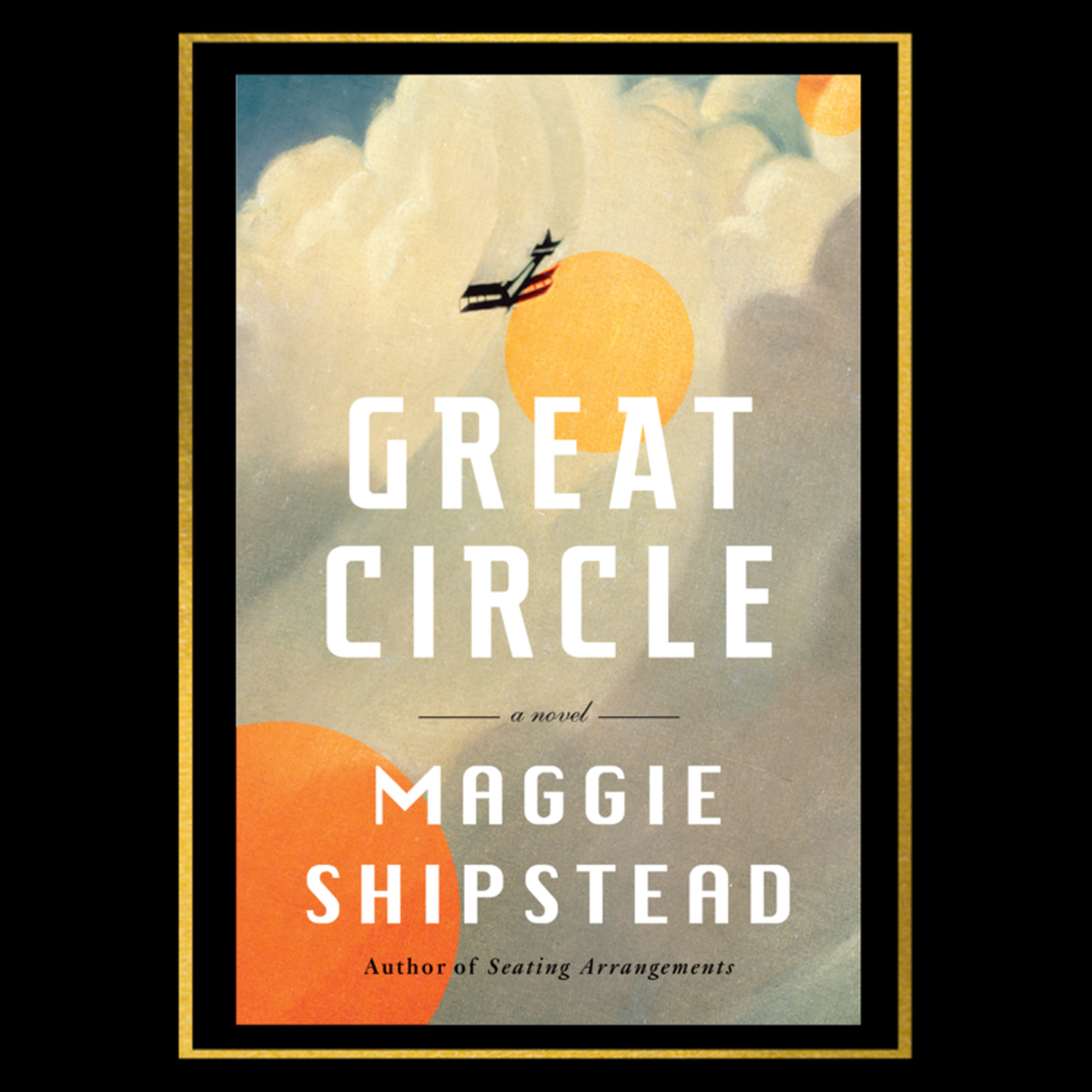Maggie Shipstead’s ‘Great Circle’ intertwines lives of female pilot, Hollywood actress 70 years apart

Glitz and guts square off in “Great Circle,” the riveting new novel by Los Angeles author Maggie Shipstead.
Cunningly crafted, Shipstead weaves a tale of two women, set apart by a century, fighting to retain control of their own lives in a society that demands subservience. This book is richly layered, a joy to read in Shipstead’s colorful and easy style.
Marian Graves is a girl who wants to be a pilot in the early 20th century, a time when women couldn’t even vote much less work in paying jobs where they defied gravity and risked crashing into mountains.
Shipstead writes so convincingly of the fictitious Graves, she even quotes footnotes from a book reportedly based on her flight logbook. By about midway through the novel, the reader gets an urge to stop and Google this colorful figure from history alongside real pilots such as Amelia Earhart.
Hadley Baxter is a B-list Hollywood actress who grew up in the Nickelodeon age of child stars and landed a starring role in the romantic blockbuster series “Archangel,” kind of a defanged “Twilight” that makes her America’s sweetheart of social media darlings.
The determined and gutsy Marian would seem to have nothing in common with the spoiled and privileged Hadley. But they both grew up orphaned, raised by inattentive Bohemian uncles, Marian’s a starving painter and alcoholic, Hadley’s a semi-successful producer and drug addict. And both are women trying to carve their own paths through life.
Despite being more than 70 years apart, their hurdles are quite similar in their efforts to negotiate societal double standards of expected gender roles and sex on demand from men with the power to give or deny them their goals.
A young Hadley even stumbles upon Marian’s story, looking to the pilot without parents, raised by an uncle, to try and find answers in her Hollywood life.
Hadley’s soaring career suddenly takes a nosedive on social media. She has an affair with a pop music star while living with a philandering boyfriend who happens to be her love interest in “Archangel.” This destroys the romantic fantasies of young women everywhere.
The two lives intersect when the actress wins the role of Marian in a much-anticipated biopic. “She was like her but wasn’t,” Hadley tells herself of Marian. “She was uncanny, unknowable, except for a few constellations I recognized from my own sky.”
Marian’s world is one where women who earn their own way are prostitutes, and she must disguise herself as a boy to get a job as a delivery driver for a local bootlegger in Missoula.
Inspired by men and women traveling as barnstormers, Marian sees the newly developed airplane as a ticket to a more adventurous life. But no one will give a girl flying lessons, and she doesn’t have a plane.
That changes, however, after the king bootlegger falls for the adolescent Marian and buys her an airplane and a flight instructor. Marian resists, knowing a man’s generosity usually carries a price, that being a woman’s freedom.
But her passion for flying proves stronger than her will for fighting off the gangster. She relents to what becomes a possessive and abusive relationship, much to the consternation of her twin brother Jamie and their best friend and her sometimes-lover Caleb.
To Marian, flying is her only freedom. “Only in the air did Marian ever fully relax,” Shipstead writes. “Flying, she was where she was supposed to be, doing what she was supposed to do. No one could reach her or ask anything of her.”
Shipstead is adept at writing so vividly, the reader can feel the thrill and pain of her characters. She changes voices between the dual characters, telling Marian’s story in third person, Hadley’s in first person.
“Great Circle” dives into the struggles of gender identity. Characters are heterosexual, gay, lesbian, bisexual, transgender and queer. Shipstead is especially adept at exploring the loneliness of lives lived outside the strictly perceived social standards of the Prohibition, Great Depression and World War II generations.
While the main characters are strong-willed women, Shipstead does not short-shrift the men. Jamie Graves, Marian’s twin brother, gets a deep treatment as a sensitive artist who finds in his brushes ways to capture the depth of people’s personalities in a portrait or movement in a landscape.
Caleb, adolescent charmer, wildlife tourist scout and war hero, is Marian’s lifetime defender and the true love neither wants to recognize. In Hollywood, there’s Redwood Feiffer, the money behind the movie, more enamored with his name in the film credits than the people behind it.
Alexi Young is the agent of Hadley’s “Archangel” co-star boyfriend and finds the actress irresistible but only in one-night stands. And then we have Sir Hugo Woolsey, “the Sir Hugo, who happens to be my neighbor,” a legendary British star, now a producer, who helps land Hadley her shot playing Marian and pours her Scotch in times of crisis.
This is also a story about death. How people die might say a lot about how they lived. The two women at the center of the story, the actress and the pilot, want to live their lives fully. They want to come and go on their own terms – without the need to even say goodbye.
Ron Sylvester has been a journalist for more than 40 years with publications including the Orange County Register, Las Vegas Sun, Wichita Eagle and USA Today. He currently lives in rural Kansas.